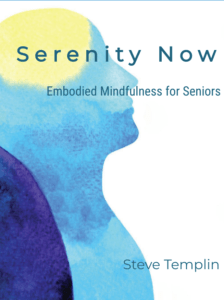There’s a lot of conflicting information around the use of iodine supplementation. There is conflict surrounding whether or not supplementation is helpful or injurious, as well as, which forms of iodine are best.
Since iodine is necessary for the proper function of thyroid tissue, and all glandular tissues, a deficiency of iodine can be responsible for a myriad of symptoms and illnesses. Depression, weight gain, fatigue, and constipation are just the tip of the hypothyroid symptom list.
A significant problem is that iodine, which comes from the ocean, is deficient in our diet. Exacerbating this problem is the fact that similar, but toxic compounds, that are readily available in our environment, like bromine, fluorine, and chlorine (halogens), attach to the iodine receptor sites.
When we begin supplementing with iodine these toxic substances are displaced and can cause symptoms related to their toxicity. It’s likely that what many believe is an allergy to iodine is really a toxic reaction to the release of halogens.
Years ago I tested patients for iodine deficiency with a rather involved and costly 24 hour urine collection. I eventually discontinued the use of that test because everyone I tested was deficient. Since I was only testing patients who exhibited signs of hypothyroidism, and they all tested deficient for iodine, today I would forego that test and suggest supplemental iodine.
It’s Essential Not to Take the Iodine Alone
The research that I’ve seen suggests that any harmful reactions from iodine can be prevented when iodine is combined with other supportive and synergistic nutrients. The key point here is not to take iodine alone.
The supportive items are:
Vitamin C – 1000 mg to 2000 mg daily
Sea Salt – Celtic or Himalayan
Water – Adequate water intake is essential (64 oz. minimum)
Magnesium – 100 mg to 400 mg daily
Selenium – 200 mcg to 400 mcg daily
While we tend to think of iodine and its relationship to thyroid function, it’s important to realize that iodine supports all glandular function, including adrenal, breast, and prostate.
Turmeric has also been shown to have a balancing influence on thyroid function.
It’s also important to be aware that the thyroid gland often slows down in response to fatigued adrenal glands. With this in mind, it’s necessary to treat the adrenal glands as well.
Concerning the issue of which form of iodine is best, I use two different forms based on the patient’s individual situation with equal success. With either product, the most important consideration is not to take it alone, but with the supportive and synergistic nutrients mentioned above.

 Steve is a retired Doctor of Oriental Medicine, Acupuncture Physician, and HeartMath Trauma-Sensitive Certified Practitioner with over 35 years of clinical experience in the fields of Energy Medicine, Energy Psychology, and Biofeedback.
Steve is a retired Doctor of Oriental Medicine, Acupuncture Physician, and HeartMath Trauma-Sensitive Certified Practitioner with over 35 years of clinical experience in the fields of Energy Medicine, Energy Psychology, and Biofeedback. 